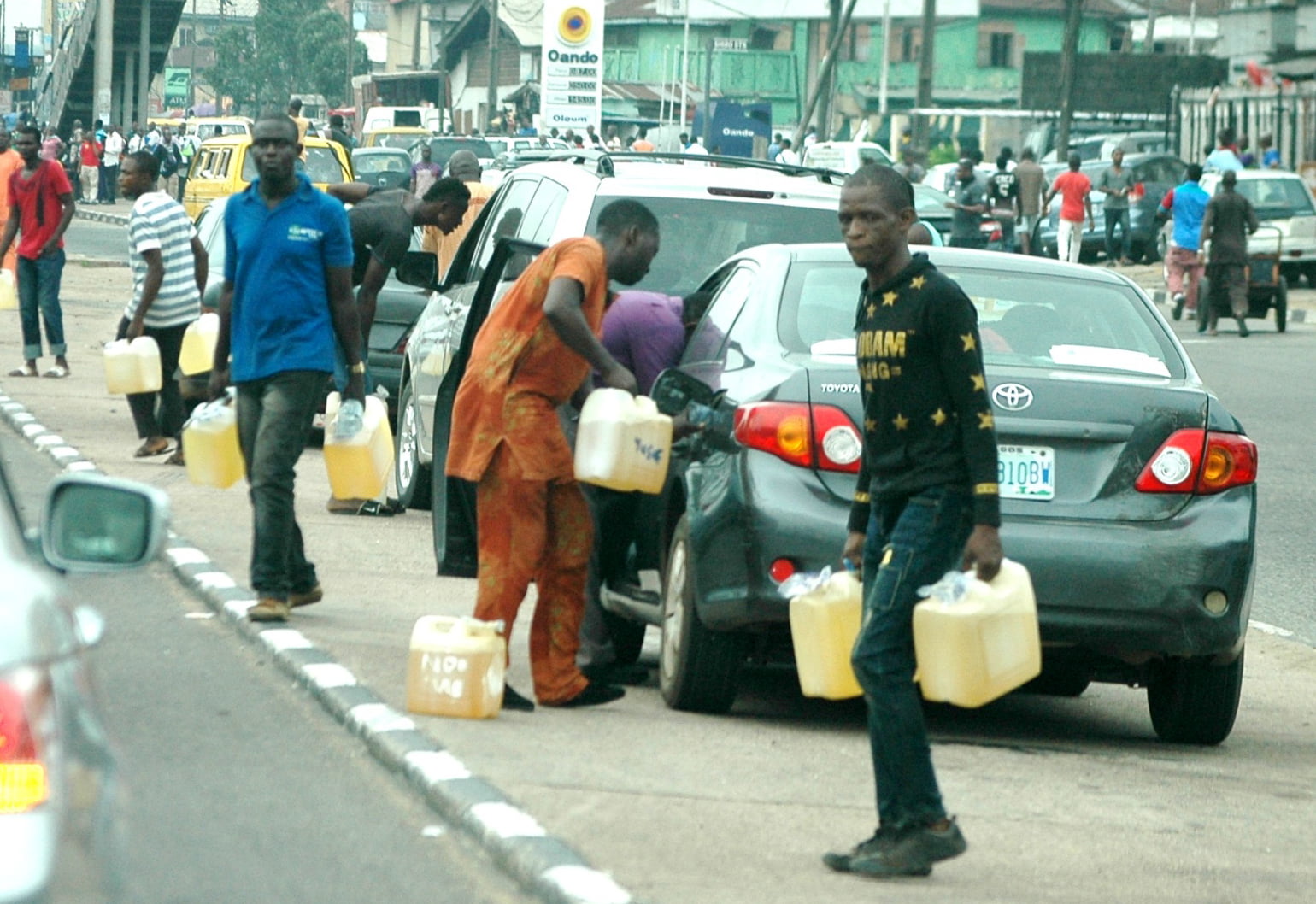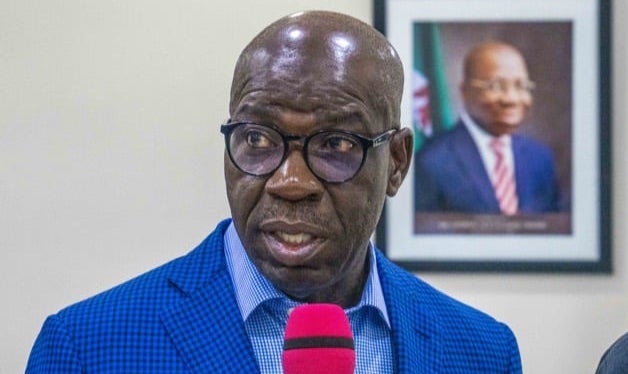Top Story
Ajaokuta: How FG reduced $5.28bn mediation claim by 91% to $496m —Malami
The Federal Government of Nigeria has settled the long-standing contractual dispute with a foreign investor group in the steel space of $5.258 billion for $496m, Attorney General of the Federation and Minister of Justice, Abubakar Malami, SAN has said.
This was made known by Dr. Umar Jibrilu Gwandu, Special Assistant on Media and Public Relations Office of the Attorney General of the Federation and Minister of Justice, in a statement made available to journalists on Sunday.
The mediation proceedings, according to the statement, was under the International Chamber of Commerce’s (ICC) Alternative Dispute Resolution (ADR) framework led by Mr Phillip Howell-Richardson. The settlement agreement came into effect on 19 August 2022.
Nigeria succeeded in reducing the claim in mediation brought by the international firm of King and Spalding, legal representatives of the Global group, by 91 per cent. A claim for over $10 billion was threatened in arbitration before the International Chamber of Commerce, International Court of Arbitration, Paris, in respect of five major contracts of 2004-2007 – covering steel, iron ore, and rail.
It might be recalled that the seeds of the disputes can be traced to five contracts entered into by the 1999-2007 administration that gave complete dominance over the Nigerian steel space to one company group, the Global Steel group.
However, in 2008 a new administration proceeded to terminate these contracts contrary to legal advice supplied by the Federal Ministry of Justice, which cited the termination cost in the form of damages.
The statement noted that had the government of that day not terminated the Ajaokuta Share Purchase Agreement on 1 April 2008 and waited for just 55 days to terminate, it would have terminated lawfully and the Government would have collected more than 26 million USD from Global Steel.
This was because the firm appeared unable to pay the first tranche for the Ajaokuta shares before the first anniversary of the agreement (25 May 2008). This failure would have given Nigeria a right to over $26m as liquidated damages under cl.12 of the Ajaokuta Share Purchase Agreement.
Global steel, in consequence, took the FGN to the International Chamber of Commerce, International Court of Arbitration, Paris, commencing arbitration in 2008. Although the Federal Government negotiated a settlement in May 2013, the previous administration failed to implement its settlement agreement.
In May 2020, Global threatened a resumption of the arbitration and announced an anticipated claim in damages of over $10-14 billion against the Nigerian State in respect of the affected 5 contracts.
The administration of President Muhammadu Buhari, however, took decisive steps to resist this claim, rather than pass it on to a future administration with ballooning interest.
With this development, Malami said President Muhammadu Buhari has now rescued the steel industry from interminable and complex disputes as well as saving the taxpayer from humongous damages.
The Minister also stated that one of the lessons to be learnt included that the future arrangements – sale or concessions – must be carried out in the national interest and in compliance with the law.
The Office of the Attorney General of the Federation and Minister of Justice grappled with the inherited problem by adopting a blueprint of seven principles for the cost-effective resolution of contractual disputes wherever they occur. They are the use of institutional mediation, choice of FGN counsel, the use of financial advisers with reputational capital, the importance of not discouraging foreign investment, fiscal responsibility, transparency, and the recognition that joined-up government produces superior outcomes.
The FGN engaged PwCNigeria to do a comprehensive review to ensure taxpayers are protected. Also, Dr Tunde Ogowewo, a barrister (and senior academic at King’s College London), represented the FGN and advised the government throughout the process. The Attorney-General of the Federation and Minister of Justice, Abubakar Malami stated of Dr Ogowewo’s report:
“FGN Counsel’s Report on Case Reference 15539/VRO/AGF/ZF/TO/AZR/SPN)_ – of over 1,000 pages provided a guide on how to avoid such contractual disputes and, where they occur, how to reach cost-effective savings for the benefit of the Nigerian taxpayer.”
Malami, therefore, reiterated the commitment of President Muhammadu Buhari-led Federal Government of standing firm to continue to make assiduous efforts in protecting the public interest and ensuring that Nigeria is not denuded of its resources through whatever means.
Top Story
Black market resurfaces, as Lagos, Ogun commuters beg for relief as PMS supply worsens

…Product sells above N900/ltr
By Sodiq Adelakun
Lagos commuters faced a difficult Monday as the lingering petrol scarcity continued to bite, leaving many stranded at bus stops across the city.
The crisis deepened as motorists scrambled to fill-up at dispensing stations, leading to a hike in fares.
With many filling stations shut and others selling the scarce commodity at exorbitant prices, tricycles and buses – the lifeline for daily commutes – were scarce, struggling to access fuel.
Some motorists revealed to NewsDirect that they purchased petrol at N900 and N1,000 per litre at filling stations, while roadside dealers sold the product for as high as N1,200 and N1,300 per litre.
The situation worsened as many filling stations stopped selling fuel altogether, exacerbating the woes of commuters who were forced to pay inflated fares or trek long distances to their destinations.
In most of the bus stops visited by NewsDirect on Monday, survival of the fittest was the prevailing philosophy as hordes of commuters were seen running after a few commercial buses.
However, chaos erupted at bus stops across Lagos on Monday as observed by our correspondent when desperate commuters scrambled to secure a spot on the few available commercial buses.
The transportation system has been thrown into disarray, leaving many wondering when the situation will improve.
Recall the crisis began after President Bola Tinubu announced the end of the petrol subsidy regime on May 29, 2023, aiming to allow market forces to determine pump prices, boost government revenue, and reduce disruptions in the value chain.
However, the move has triggered severe petrol scarcity, leading to a hike in fares across Lagos.
Commuters are feeling the pinch, with fares skyrocketing by as much as 50 percent.
For example, the journey from Kola roundabout to Agege, which previously cost N400 or N300, now costs N800. Similarly, the trip from Agege to Alausa in Ikeja has increased from N300 to N400.
According to one of the commuters, Temitope, he said, “Oh my goodness, I can totally relate to this! I was at the bus stop yesterday and it was like a war zone! People were pushing and shoving, trying to get on the few buses available.
“I was lucky to get on one, but I had to pay N800 for a journey that normally costs N400! It’s like they’re taking advantage of our desperation. And to think it’s all because of the petrol scarcity caused by the removal of the subsidy.
“I understand the government’s intention, but they should have had a better plan in place to mitigate the effects on commuters like us. This is really tough, and I hope they find a solution soon!”
Also, a female marketer, Promise, has lamented the devastating impact of the ongoing petrol scarcity on her business, echoing the plight of many others in the sector.
She said, “This petrol scarcity is affecting my business so much! I sell perishable goods at the market, and I need to transport them daily from one place to another.
“But with this scarcity, the few buses available are hiking their fares and it’s eating into my profit. I used to pay N400 or N300 from Kola roundabout to Agege, but now they’re asking for N800! And from Agege to Alausa, it’s now N400 instead of N300.
“How am I supposed to make a living like this? The government should do something to help us, we’re suffering! I’m a widow with three children to feed, and this is really affecting my family. Please, something needs to be done urgently!”
Top Story
Obaseki approves new minimum wage of N70,000 for Edo workers


…Urges FG to follow suit
By Elvis Omoregie, Benin
The Edo State governor, Mr. Godwin Obaseki has announced a 90 percent increase in workers salary, instead of N40,000 the least worker in the state will now go home with N70,000 as a result of the increment effective May 1.
He disclosed this on Monday during the Commissioning of the newly built Labour House, an edifice that would house the Nigeria Labour Congress (NLC) and Trade Union Congress (TUC) secretariat in Edo State
The Governor said workers have continued to be challenged due to devaluation and inflation which, according to him, has made the workers wages insignificant.
Obaseki also urged the Federal government to increase workers salaries more than what his administration was offering and vowed to also adjust the State workforce wage.
According to him, “I am one of those governors advocating that we must adjust the minimum wage of workers in Nigeria.”
Obaseki also put aside partisan politics and named the edifice after his predecessor, Senator Adams Oshiomhole.
The Governor was joined in the exercise by Comrade Joe Ajero and Festus Uwaifo, National presidents of Nigeria Labour Congress (NLC) and Trade Union Congress (TUC) respectively.
Top Story
Naira appreciates by 5.93% on parallel market


The Naira on Monday gained 5.93 percent on the parallel market, popularly called the black market.
The local currency exchanged with the US dollar at the rate of N1,350 on Monday, as against N1,430 exchanged on Friday on the black market.
According to currency traders, the naira appreciation followed a moderation in the demand for the greenback, which was scarce on Friday due to scarcity of dollars.
At the Nigerian Autonomous Foreign Exchange Market (NAFEM), the naira depreciated by 2.24 percent as the dollar was quoted at N1,339.23 on Friday compared to N1,309.88/$1 quoted on Thursday last week, according the data released by the FMDQ Securities Exchange.
The intraday high closed at N1,410 per dollar on Friday, stronger than N1,435 closed on Thursday. The intraday low also appreciated to N1,051 per dollar on Friday, from the low of N1,100/$1 quoted on the spot trading on Thursday.
Dollar supplied by the willing buyers and willing sellers declined marginally by 2.85 percent to $309.01 million on Friday from $318.08 million recorded on Thursday.
-
capital market2 years ago
Rt.briscoe, FBNH, Others halts negative performance of stock market
-
Finance3 months ago
Court orders Sen. Victor Umeh to repay N136m bank debt to AMCON
-



 Abuja Update2 months ago
Abuja Update2 months agoUNDP, FG partnership needed to achieve inclusion, equity- Minister
-
Abuja Update1 month ago
Banks drive stock market performance with N147bn gain
-



 Business1 week ago
Business1 week agoTingo Group unveils Tingo Electric, Tingo Cola drink at Lagos launch
-



 Health2 weeks ago
Health2 weeks agoCapacity training will reduce migration of health workers- NPHCDA
-



 Infotech4 weeks ago
Infotech4 weeks agoWorld Backup Day: NITDA urges Nigerians to ensure backup of data
-
News4 months ago
Oil thieves sponsoring malicious media campaign against Navy – Spokesman




